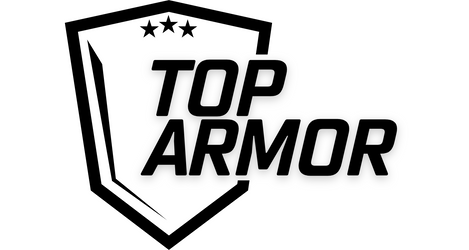
The Ultimate Guide to ICW Plates: What You Need to Know
When searching for body armor, you may have come across the term "ICW" in a name that reads something like "Level III ICW IIIA". What does this mean? Today we are going to be discussing everything you need to know about ICW plates from what it means to best use cases to a couple of popular options.
Understanding ICW Plates
ICW (In Conjunction With) plates are a critical component in the realm of personal body armor. Unlike standalone plates that provide ballistic protection on their own, ICW plates are designed to be used in conjunction with a soft armor vest. When reading a title such as "Level III ICW IIIA", this means the plate is rated for Level III threats when worn in conjunction with Level IIIA soft armor.
This combination enhances the overall protective capability, providing a comprehensive defense against various threats while achieving minimal weight load and maximum concealment. Now we will discuss more about where a setup like this may be preferred and its most common users.
Scenarios for Using ICW Plates
ICW plates are particularly useful in scenarios where quick access to additional protection is paramount. Law enforcement officers, military personnel, and security professionals often rely on these plates in high-risk environments.
Officers routinely wear soft armor for handgun protection and ICW plates are the lightest and most efficient option to quickly upgrade to rifle protection. On the job, an officer may not have time to switch into a full plate carrier nor would he prefer lugging around 10-20 pounds worth of rifle armor through a lengthy shift. ICW plates provide a unique solution for comfort during extended wear and quick upgrading to rifle protection without removing soft armor vests.
They are also favored by those who need to balance mobility and protection, as the combination of soft armor and ICW plates allows for flexibility while maintaining a high level of defense.
Why ICW Plates Can Be Expensive
The main reason ICW plates can be expensive is due to their construction. These plates are typically made from high-grade materials, like UHMWPE, that are both lightweight and thin, yet capable of stopping high-velocity projectiles. The manufacturing process involves advanced technology and rigorous testing to ensure each plate meets stringent safety standards. This level of quality and reliability comes at a cost, but it is a worthwhile investment for those who prefer the most lightweight, low-vis, rifle protection.
Viable ICW Armor Options
HighCom Armor 3i7m

The 3i7m is a unique ICW model from HighCom Armor. What makes it unique is its NIJ certification. Very rarely are ICW plates NIJ certified as they must be tested and worn with a specified model of soft armor, not just any model of the required threat level. This means the manufacturer must also have their own reputable model of NIJ certified soft armor as well as the capacity and capital to perform thorough testing in production. There are few of these manufacturers and HighCom's trusted suite of both hard and soft armor set them apart from the competition.
More specifically, this plate is NIJ certified only when worn with HighCom's sa3920 Level IIIA soft armor. This is reflected in the official NIJ naming of the model: 3i7m ICW sa3920. You can find all of HighCom's certified models on the NIJ Compliant Product List here. Although the 3i7m is not certified for the model, it is still tested to be worn with sa2910 Level II soft armor.
3i7m is made from 100% DSM Dyneema UHMWPE using the XTclave™ composite curing and consolidation technology. Positive buoyancy is another plus for users. Stops 7.62x51mm NATO, 5.56x45mm M193, and 7.62x39mm MSC.
HighCom Armor 3i10m

The 3i10m is HighCom's thinnest plate to date. Coming in at just under half an inch (0.47"), this is the plate for those looking to be as low-vis as possible. Also made of 100% DSM Dyneema UHMWPE in the XTclave™, buoyant, and coated in a polyurea anti-spall finish. Contrary to steel plate spall coats, these ICW plate coats are meant to mitigate bullet shrapnel rather than plate material spall. The ICW plates themselves do not spall.
Unlike 3i7m, 3i10m is not limited to certain models of soft armor and can be worn with any NIJ certified Level IIIA soft armor panel or insert. The only trade off is that 3i10m is not NIJ certified like 3i7m. But, like we discussed earlier, NIJ certification is quite rare in ICW plates to begin with.
3i10m is tested to the same threats as 3i7m: 7.62x51mm NATO, 5.56x45mm M193, and 7.62x39mm MSC.
Which One Is Best?
There is not one specific thing that makes 3i7m better than 3i10m or vice versa. They are both tested to the same rounds and made with a specific use case in mind. 3i7m is popular with the many patrol officers wearing sa3920 Level IIIA soft armor and 3i10m is most popular for those looking for ultra low-vis rifle protection on top of their soft armor.
ICW plates are a unique purchase and are not necessary for everybody considering the price tag. With officers needing to wear armor through long shifts, it is understandable why they may upgrade to ICW plates for maximum all-day comfort.
Consider your wants, needs, and budget. If you still are not sure if ICW plates are for you, don't hesitate to reach out! Our team is always glad to chat with you to help find exactly what you are looking for.
